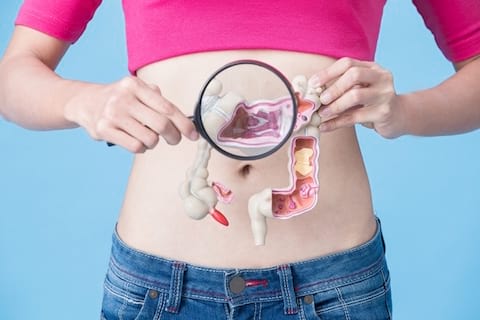

The Comprehensive Stool Analysis test is a very valuable way for Naturopathic Doctors to asses the health of your digestive track. It assess inflammation, what you digest & don’t digest, metabolites, your micro biome and whether or not you have infections, yeast / fungus or parasites.
This is a very in depth stool testing and provides great detail about various health concerns such as IBD (Crohn’s and Colitis) and IBS. This test is also useful for digestive symptoms, autoimmune disorders, inflammation, food sensitivities, nutritional status / deficiencies, malabsorption, acne / eczema / psoriasis and other skin conditions.
In order to have a good functioning digestive track you need the food you consume to be properly digested, assimilated into nutrients and efficiently absorbed into the circulation. A dysfunction in proper digestion can be attributed to: NSAIDS (medications), low / high stomach acid, food sensitivities, Small Intestinal Bacterial Overgrowth (SIBO), general dysbiosis, pathogens such as bacteria, yeast or parasites. This test helps evaluate different digestive markers, metabolic markers, inflammatory as well as pathogens.

This is different than the stool test you get prescribed at your family doctors office, as most likely you get tested just for blood in stool, Giardia and Clostridium bacteria. In comparison, this stool analysis provides an overview of your general healthy bacterial flora (probiotics), as well as the quantity. For example, do you need to increase your lactobacillus or your bifidobacterium probiotics in the gut? (these are the two most common strains of bacteria).
It also provides information whether or not you have any opportunistic bacteria. Opportunistic bacteria are a type of bacteria that don’t have to be in the gut, and sometimes, may cause symptoms such as SIBO symptoms and dysbiosis. This test also looks for different pathogens such as protozoa and fungus by looking at the two possible life stages of growth for higher accuracy.
If any of the above is presented, the pathogens will be tested for susceptibility against natural and pharmaceutical therapies in order to determine the best and most effective treatment targeted for your individual stool biomarkers. Having any of these bio markers out of balance can cause Leaky Gut Syndrome (read more here).
This Comprehensive Stool Analysis kit provides you with everything you need in order to make it an easy to do at home test. The testing involves a collection of 3 stools and once it’s done, you will ship it directly to the laboratory in the provided expedited envelope. Dr. Tali will notify you once she has received the test results, which usually take two weeks. You will go together over the Stool Analysis test results and the appropriate treatment plan.
Parasitology Stool Testing can be added to this comprehensive stool analysis if gut parasites are suspected (click here to read more about parasitology testing).
Have any further questions about comprehensive stool analysis testing?
Feel free to contact Dr. Tali Troyansky ND, Toronto Naturopathic Doctor , to discuss whether you should be tested.